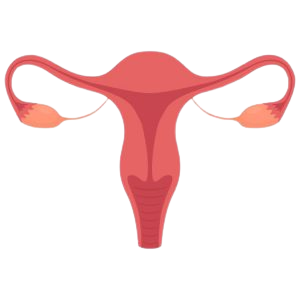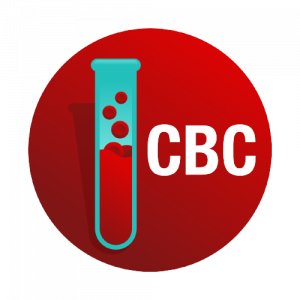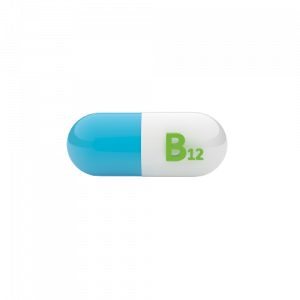Female Fertility Blood Test
$149.00
There are several blood tests available to assess female fertility and provide insights into reproductive health. These tests help evaluate hormone levels, identify potential issues that may affect fertility, and aid in diagnosing certain conditions. This test measures the levels of Follicle-Stimulating Hormone (FSH), Luteinizing Hormone (LH), Progesterone and Estradiol in your blood.
Analytes in this test: 4 Total Analytes:- Follicle-Stimulating Hormone (FSH), Luteinizing Hormone (LH), Progesterone and Estradiol.
Description
About the Test
There are several blood tests available to assess female fertility and provide insights into reproductive health. This test helps evaluate hormone levels, identify potential issues that may affect fertility, and aid in diagnosing certain conditions.
- Follicle-Stimulating Hormone (FSH): FSH is a hormone that stimulates the development of follicles in the ovaries and the production of estrogen. Elevated FSH levels may indicate diminished ovarian reserve or decreased egg quality.
- Luteinizing Hormone (LH): LH is responsible for triggering ovulation and the release of an egg from the ovaries. Blood tests for LH are often used to determine the timing of ovulation and the fertile window.
- Estradiol (E2): Estradiol is the primary form of estrogen in the body. Blood tests for estradiol help evaluate the overall health of the ovaries and assess egg quality.
- Progesterone: Progesterone levels rise after ovulation and play a crucial role in preparing the uterus for potential implantation. Blood tests for progesterone are often used to confirm ovulation and evaluate the luteal phase of the menstrual cycle.
Analytes Tested In Women’s Fertility Blood Test
4 Analytes
- Follicle-Stimulating Hormone (FSH)
- Luteinizing Hormone (LH)
- Estradiol
- Progesterone
Follicle-Stimulating Hormone (FSH)
Follicle Stimulating Hormone (FSH) is a hormone that is produced by the pituitary gland and plays a key role in reproductive function. In women, FSH helps regulate the menstrual cycle and stimulates the growth and maturation of ovarian follicles, which are structures that contain developing eggs. In men, FSH stimulates the production of sperm in the testes. FSH levels can be measured through a blood test and may be used to diagnose certain reproductive disorders or to monitor fertility treatments. It’s important to talk to a healthcare provider about any concerns related to FSH or other hormone levels.
FSH And Fertility
Follicle-Stimulating Hormone (FSH) plays a critical role in female fertility. Here’s how FSH relates to fertility:
-
Follicle Development: FSH is responsible for stimulating the growth and development of ovarian follicles in the ovaries. Each follicle contains an immature egg (oocyte), and FSH helps these follicles mature during the menstrual cycle.
-
Ovulation: FSH levels rise during the early phase of the menstrual cycle, signaling the ovaries to begin follicle development. As follicles grow, they produce increasing amounts of estrogen, which feeds back to the pituitary gland and hypothalamus, leading to a decrease in FSH levels. This drop in FSH allows a single dominant follicle to continue developing and eventually leads to ovulation.
-
Ovarian Reserve: FSH levels can provide an indication of a woman’s ovarian reserve, which refers to the quantity and quality of remaining eggs in the ovaries. As ovarian reserve declines with age, FSH levels may increase, as the body attempts to stimulate follicle development in response to reduced egg supply.
-
Menopause: As a woman approaches menopause, FSH levels can significantly increase. Elevated FSH levels indicate a decline in ovarian function and serve as a diagnostic marker for menopause.
In fertility evaluations, FSH levels are often measured through a blood test on specific days of the menstrual cycle. The most common timing for FSH testing is on day 3 of the cycle, as it provides information about a woman’s ovarian reserve and potential response to fertility treatments.
High FSH levels may suggest diminished ovarian reserve, which can make it more challenging to conceive. However, it’s important to note that FSH levels alone do not provide a complete picture of fertility potential, as other factors such as age, overall health, and other hormone levels also play a role.
If fertility issues are suspected, healthcare providers may assess FSH levels in conjunction with other hormonal markers and conduct additional tests to further evaluate fertility potential.
It’s recommended to consult with a healthcare provider specializing in reproductive health for a thorough evaluation and personalized guidance regarding FSH levels and fertility. They can assess your specific situation, conduct appropriate tests, and provide recommendations or treatment options tailored to your needs.
What Is A Follicle Stimulating Hormone (FSH) Test?
This test measures the level of follicle-stimulating hormone (FSH) in your blood. FSH is made by your pituitary gland, a small gland located underneath the brain. FSH plays an important role in sexual development and functioning.
In women, FSH helps control the menstrual cycle and stimulates the growth of eggs in the ovaries. FSH levels in women change throughout the menstrual cycle, with the highest levels happening just before an egg is released by the ovary. This is known as ovulation.
In men, FSH helps control the production of sperm. Normally, FSH levels in men do not change very much.
In children, FSH levels are usually low until puberty, when levels begin to rise. In girls, it helps signal the ovaries to make estrogen. In boys, it helps signal the testes to make testosterone.
Too much or too little FSH can cause a variety of problems, including infertility (the inability to get pregnant), menstrual difficulties in women, low sex drive in men, and early or delayed puberty in children.
What Is An FSH Test Used For?
FSH works closely with another hormone called luteinizing hormone to control sexual functions. So a luteinizing hormone test is often done along with an FSH test. These tests are used in different ways, depending on whether you are a woman, man, or child.
In women, these tests are most often used to:
- Help find the cause of infertility.
- Find out if there is a problem with ovarian function.
- Find the reason for irregular or stopped menstrual periods.
- Confirm the start of menopause, or perimenopause. Menopause is the time in a woman’s life when her menstrual periods have stopped and she can’t become pregnant anymore. It usually starts when a woman is around 50 years old. Perimenopause is the transition period before menopause. It can last for several years. FSH testing may be done towards the end of this transition.
In men, these tests are most often used to:
- Help find the cause of infertility.
- Find the reason for a low sperm count.
- Find out if there is a problem with the testicles.
In children, these tests are most often used to help diagnose early or delayed puberty.
- Puberty is considered early if it starts before age 9 in girls and before age 10 in boys.
- Puberty is considered delayed if it hasn’t started by age 13 in girls and by age 14 in boys.
Whys Do I Need An FSH Test?
If you are a woman, you may need this test if:
- You’ve been unable to get pregnant after 12 months of trying.
- Your menstrual cycle is irregular.
- Your periods have stopped. The test may be used to find out if you have gone through menopause or are in perimenopause.
If you are a man, you may need this test if:
- You’ve been unable to get your partner pregnant after 12 months of trying.
Your sex drive is decreased.
Both men and women may need testing if they have symptoms of a pituitary disorder. These include some of the symptoms listed above, as well as:
- Fatigue
- Weakness
- Weight loss
- Decreased appetite
What Do The FSH Results Mean?
The meaning of your results will depend on whether you are a woman, man, or child.
If you are a woman, high FSH levels may mean you have:
- Primary ovarian insufficiency (POI), also known as premature ovarian failure. POI is the loss of ovarian function before the age of 40.
- Polycystic ovary syndrome (PCOS), a common hormonal disorder affecting childbearing women. It is one of the leading causes of female infertility.
- Started menopause or are in perimenopause.
- An ovarian tumor.
- Turner syndrome, a genetic disorder that affects sexual development in females. It often causes infertility.
If you are a woman, low FSH levels may mean:
- Your ovaries are not making enough eggs.
- Your pituitary gland is not working correctly.
- You have a problem with your hypothalamus, a part of the brain that controls the pituitary gland and other important body functions.
- You are very underweight.
If you are a man, high FSH levels may mean:
- Your testicles have been damaged due to chemotherapy, radiation, infection, or alcohol abuse.
- You have Klinefelter syndrome, a genetic disorder affects sexual development in males. It often causes infertility.
If you are a man, low FSH levels may mean:
- you have a disorder of the pituitary gland or hypothalamus.
In children, high FSH levels, along with high levels of luteinizing hormone, may mean puberty is about to start or has already started. If this is happening before age 9 in a girl or before age 10 in a boy (precocious puberty), it may be a sign of:
- A disorder of the central nervous system
- A brain injury
- Low FSH and luteinizing hormone levels in children may be a sign of delayed puberty.
Delayed puberty may be caused by:
- A disorder of the ovaries or testicles
- Turner syndrome in girls
- Klinefelter syndrome in boys
- An infection
- A hormone deficiency
- An eating disorder
LH And Fertility
Luteinizing Hormone (LH) is closely tied to female fertility, particularly in relation to ovulation. Here’s how LH relates to fertility:
-
Ovulation: LH surge is a vital event in the menstrual cycle that triggers the release of a mature egg (ovulation) from the dominant follicle in the ovary. The surge typically occurs about 24 to 36 hours before ovulation. The rise in LH levels stimulates the follicle to rupture, allowing the egg to be released and be available for fertilization.
-
Timing Fertility: LH surge serves as a useful marker for timing fertility. Predicting and detecting the LH surge can help identify the fertile window, the days when conception is most likely to occur. This knowledge can aid couples in timing intercourse for optimal chances of pregnancy.
-
Ovulatory Disorders: Irregular or absent LH surge can indicate ovulatory disorders, such as polycystic ovary syndrome (PCOS). In PCOS, elevated levels of LH can disrupt the normal ovulation process, leading to irregular or infrequent ovulation.
-
Monitoring Fertility Treatments: LH monitoring is commonly used in fertility treatments, such as timed intercourse or assisted reproductive technologies (ART) like in vitro fertilization (IVF). It helps determine the optimal timing for procedures like insemination or egg retrieval.
LH levels can be measured using urine-based LH tests or blood tests. Urine-based LH tests, also known as ovulation predictor kits (OPKs), are widely available over-the-counter and detect the LH surge in urine samples. Blood tests can provide more precise measurements of LH levels and are typically conducted in a clinical setting.
It’s important to note that while LH surge is necessary for ovulation, the presence of an LH surge doesn’t guarantee successful conception. Other factors, such as sperm quality, fallopian tube health, and overall reproductive health, also play crucial roles in achieving pregnancy.
If you have concerns about fertility or are trying to conceive, it’s recommended to consult with a healthcare provider specializing in reproductive health. They can assess your specific situation, conduct appropriate tests, and provide personalized guidance and treatment options based on your needs.
What Is A Luteinizing Hormone (LH) Levels Test?
This test measures the level of luteinizing hormone (LH) in your blood. LH is made by your pituitary gland, a small gland located underneath the brain. LH plays an important role in sexual development and functioning.
- In women, LH helps control the menstrual cycle. It also triggers the release of an egg from the ovary. This is known as ovulation. LH levels quickly rise just before ovulation.
- In men, LH causes the testicles to make testosterone, which is important for producing sperm. Normally, LH levels in men do not change very much.
- In children, LH levels are usually low in early childhood, and begin to rise a couple of years before the start of puberty. In girls, LH helps signal the ovaries to make estrogen. In boys, it helps signal the testes to make testosterone.
Too much or too little LH can cause a variety of problems, including infertility (the inability to get pregnant), menstrual difficulties in women, low sex drive in men, and early or delayed puberty in children.
What Do The LH Results Mean?
The meaning of your results will depend on whether you are a woman, man, or child.
If you are woman, high LH levels may mean you:
- Are not ovulating. If you are of childbearing age, this may mean you have a problem in your ovaries. If you are older, it may mean you have started menopause or are in perimenopause.
- Have polycystic ovary syndrome (PCOS). PCOS is a common hormone disorder affecting childbearing women. It is one of the leading causes of female infertility.
- Have Turner syndrome, a genetic disorder affects sexual development in females. It often causes infertility.
If you are woman, low LH levels may mean:
- Your pituitary gland is not working correctly.
- You have an eating disorder.
- You have malnutrition.
If you are a man, high LH levels may mean:
- Your testicles have been damaged due to chemotherapy, radiation, infection, or alcohol abuse.
- You have Klinefelter’s syndrome, a genetic disorder that affects sexual development in males. It often causes infertility
If you are a man, low LH levels may mean you have a disorder of the pituitary gland or the hypothalamus, a part of the brain that controls the pituitary gland and other important body functions.
Progesterone And Fertility
Progesterone plays a crucial role in fertility and the menstrual cycle. It is a hormone produced by the ovaries after ovulation occurs. Here’s how progesterone influences fertility:
-
Ovulation: Progesterone is released by the ovary after the release of an egg (ovulation). It helps prepare the uterus for potential implantation of a fertilized egg by thickening the uterine lining (endometrium) and promoting a receptive environment for implantation to occur.
-
Timing of Ovulation: Progesterone levels rise following ovulation and can be used as a marker to confirm that ovulation has taken place. Tracking progesterone levels can help determine the timing of ovulation, which is essential for optimizing the chances of conception.
-
Luteal Phase Support: After ovulation, progesterone maintains the thickened endometrium and supports the early stages of pregnancy if fertilization occurs. It helps create a suitable environment for implantation and the nourishment of a developing embryo.
-
Hormonal Balance: Progesterone works in conjunction with other hormones, such as estrogen, to maintain hormonal balance during the menstrual cycle. An imbalance in progesterone levels relative to estrogen can affect fertility and menstrual regularity.
-
Pregnancy Support: If pregnancy occurs, progesterone production continues to rise, supporting the maintenance of the pregnancy and preventing menstruation. In the early stages of pregnancy, the placenta takes over the production of progesterone.
In fertility evaluation and treatment, progesterone levels are often monitored to assess the luteal phase of the menstrual cycle and confirm ovulation. Blood tests for progesterone are typically performed around seven days before the expected start of the next menstrual period. Adequate progesterone levels during the luteal phase are essential for successful implantation and the maintenance of a healthy pregnancy.
If progesterone levels are found to be low during the luteal phase or there are concerns about progesterone deficiency, healthcare providers may recommend progesterone supplementation to support fertility and early pregnancy. Progesterone can be administered orally, vaginally, or through injections, depending on the individual situation.
It’s important to note that fertility is influenced by various factors beyond progesterone alone. If you have concerns about your fertility or are trying to conceive, it’s recommended to consult with a healthcare provider specializing in reproductive health. They can assess your specific situation, conduct appropriate tests, and provide personalized guidance and treatment options based on your needs.
Estradiol And Fertility
Estradiol, which is the primary form of estrogen in the body, plays a significant role in fertility. It influences various aspects of the reproductive system and menstrual cycle. Here’s how estradiol relates to fertility:
-
Follicle Development: Estradiol is produced by the developing ovarian follicles. As follicles mature, they produce increasing amounts of estradiol, which stimulates the growth and development of the uterine lining (endometrium) in preparation for potential implantation.
-
Ovulation: Estradiol levels rise in the days leading up to ovulation. This surge in estradiol helps trigger the release of luteinizing hormone (LH), which causes the dominant follicle to rupture and release an egg for fertilization.
-
Cervical Mucus Changes: Estradiol influences the quality and quantity of cervical mucus. Around ovulation, estradiol levels increase, leading to changes in cervical mucus that make it more favorable for sperm survival and migration towards the egg.
-
Uterine Receptivity: Estradiol contributes to the preparation of the endometrium for potential embryo implantation. It helps thicken the endometrial lining and promotes its receptivity to a fertilized egg.
-
Hormonal Balance: Estradiol works in harmony with other hormones, such as progesterone, to maintain hormonal balance during the menstrual cycle. Imbalances in estradiol levels relative to other hormones can affect fertility and menstrual regularity.
Monitoring estradiol levels, along with other hormonal markers, can help assess fertility and guide treatment decisions. Estradiol levels are typically measured through blood tests during specific phases of the menstrual cycle, such as the follicular phase and around ovulation.
Estradiol supplementation is sometimes used in fertility treatment protocols to support follicle development and enhance endometrial receptivity. In assisted reproductive technologies (ART), such as in vitro fertilization (IVF), estradiol is often administered to control the timing of follicle growth and support the development of multiple mature eggs.
It’s important to note that estradiol is just one piece of the fertility puzzle, and fertility is influenced by various factors. If you have concerns about your fertility or are trying to conceive, it’s recommended to consult with a healthcare provider specializing in reproductive health. They can assess your specific situation, conduct appropriate tests, and provide personalized guidance and treatment options based on your needs.
Specimen Requirements
SST tube of blood, serum
Turn Around Time
24 – 72 hours
Price For Test
Price: $149






